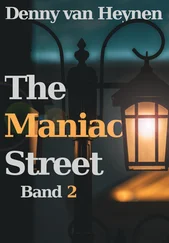Apart from being a Chichikoff, Hovans is a swan — as a matter of fact, the swan in Swan Lake; he is a man driven to suicidal madness in a single night, by a tenacious mouse pitter-pattering across the floor of the man’s mind; he is Raskolnikov, whose murder of the old lady is not justified philosophically, but by the fact that she is Jewish — an interpretation that goes over much better with his audience; and, finally, he is the Russian Hamlet. The Hamlet performances are crowned — as Fortinbras looms over Hamlet’s body — with the audience (whose wounds from the slings and arrows of outrageous fortune have not healed, and never will) sonorously singing: “Do not close your eyes, Mother Russia, for it is not time to sleep.”
But when he isn’t bringing his audiences to an orgasm of nostalgia, Captain Pick supplements his fame with the lucre reaped in the rich, filthy fields of Shanghai’s lawlessness. He blackmails an American judge who, he has discovered, is a homosexual. One day, the judge’s body washes off the shores of the Whangpoo, with his rectum cut out. In 1929, Captain Pick is sentenced to nine months in jail for having sold, under the name of Joseph Pronek, bonds of nonexistent foreign countries to a few seducible French mademoiselles and greedy English ladies. Then, Wasserstein says, he hawks worthless pamphlets and books stolen for him by the coolies from the Soviet consulate, wrapped nicely in the preposterous embroidery of Pick’s tales of their conspiratorial significance. He writes a column for a Shanghai-published Russian paper, in which he exposes the weaknesses in the pillars of the community, unless the pillars provide a recompense that would make him look at the frailties of other pillars instead. In 1931, under the name of Dr. Montaigne, he represents himself as a military adviser to the Chinese government and takes millions of dollars for arms that do not exist, which is what will ultimately prevent him from supplying them. His clients spend months imagining their future power, waiting for the arms to arrive and retelling Pick’s stories, until he is arrested and sentenced to a year in prison. In prison, he acquires a few Chinese friends, some of them loyal members of the Green Gang, hiding from the law in their comfortable prison cells (the Gang kindly providing everything from opium and girls to heroin and boys) until the memory of their crimes is erased by the newer crimes of their colleagues and acquaintances. Once out of jail, Pick shacks up with a Georgian woman who owns a brothel just behind the Astor House Hotel, and starts a modest white-slavery ring of his own. Both his fallen Russian lady friends and his Green Gang comrades come in handy in his new venture — which a sanctimonious Russian paper in Harbin unwisely makes public.
But no one cares about those self-righteous accusations (although a little nick is left on Pick’s heart) — Shanghai is a far different place from the priggish Harbin, people do what they have to and what they can to make a decent living. Furthermore, Captain Pick is a well-liked man, “the soul of every party he attends”—and he, God help him, attends many. He is the heart of the Russian community, always able to express the deep, true feelings of the Russian people. An acquaintance describes him as “a highly emotional individual,” someone who is “very trusting.” But, on the other hand, the acquaintance asserts, “he could be very suspicious. . He met many people, but quickly tired of them. Therefore, he had many enemies and no intimate friends. . He used to say: ‘Drama and music are my best friends and the stage my entire life.’” Another acquaintance describes him as having “a Mongolian cast of countenance. . no hair at all, wears a black skull cap, has burn scars on his head. . a heavy vodka drinker. . usually goes around with a rosewood-handle knife. . a friendly, decent fellow.”
The scars on his head are not the result of burning oil, as he claims, poured on him during a Bolshevik torture session, let alone the result of a Pacific wind strong enough to rip the skin off his face. Rather, it is a result of his opium stupor, in which he rolled off his opium-den divan and into a hearth.
Even a typically earnest American intelligence report has a hard time resisting Captain Pick’s charms, describing him as “well-educated, a good linguist, accomplished actor, fascinating story teller, but a facile writer. He is also a smuggler of arms, pimp, intelligence agent, and a competent murderer.”
Ever sensitive to the changing winds of history, Captain Pick has groomed his Japanese contacts with particular care from the beginning of his life in Shanghai, but in 1937, after the Japanese invasion of China, he begins working for the Japanese Naval intelligence Bureau in Shanghai. He assembles a ring of some forty European agents (not counting the gaggle of drugged-up Russian ladies), who are supposed to spy on other Europeans in Shanghai, believing themselves to be protected from the Japanese might in the International Settlement and the French Concession. His ring is the elite of Shanghai’s underworld: Baron N. N. Tipolt, a blackmailer, swindler, and informer for the Gestapo; Count Victor Plavchuk, handy with the blade, who would often entertain brothel staff by throwing knives at a terrified novice prostitute, occasionally pinning down her ears, just for a laugh; Admiral Marcus Templar, purportedly a member of the Greek Royal House, whose specialty is taking surreptitious photographs, used for blackmailing; Bernie and Ernie McDunn, Siamese Chicago twins, conjoined at the hip, who would do anything for a dose of heroin; Alex Hemmon, a former member of the Purple Gang in Detroit, a hit man who has to kill somebody every time he gets drunk (which he does habitually), and who moonlights as a professional trombonist in an orchestra regularly performing at the Far Eastern Grand Opera.
In the late thirties, under Japanese protection, Captain Pick’s is a cozy living. He’s providing plausible information to his employees, running his criminal (which in Shanghai is a term of endearment) enterprises and lovingly managing his Far Eastern Grand Opera. In 1940, Pick goes to Japan for a holiday, where he meets Commander Otani Inaho, the Japanese officer who will later head Naval Intelligence in Shanghai and become Pick’s chief Japanese patron. Commander Otani and Captain Pick become the closest friends, often publicly pronouncing their utmost respect and admiration for each other’s honor and manhood. Indeed, malicious rumor has it that besides sharing a deeply seated belief in the value of discipline and patriotism, they occasionally shared a messy bed. In 1941, a week or so after the Pearl Harbor attack, the Japanese troops march leisurely into the International Settlement, encountering no resistance, and practically besiege the French Concession, run by a herd of confused, dim-witted Vichy loyalists. Pick becomes Commander Otani’s left hand and, thanks to his kind assiduousness, moves into room 741 at the luxurious Cathay Hotel.
The years spent in room 741 at the Cathay Hotel, dozing in the lap of the great power, are the best years of Pick’s life: comfortable, pleasant, not requiring a lot of work. A postwar American intelligence report, quoted by Wasserstein (prepared by one Captain Owen), describes Pick’s typical day: he gets up before dawn, watches the sun rise through the humid haze over the Whangpoo River, where robust Japanese ships are anchored in the harbor, junks sheepishly squeezing between them; he listens to the radio news from Moscow, London, Honolulu (enjoying the Glen Miller Band, humming along with Glen’s trombone); from six to seven A.M. he is on the phone, receiving and dispatching Shanghai intelligence, conveyed often as plain, candid gossip. He reads Russian newspapers and eats breakfast (two eggs, a mountain of bacon, a river of coffee), sometimes spurting a fleet of yolky spit all over the papers, infuriated by their dishonorable lies. Then he goes to the office at the Naval Intelligence, where he organizes files or masturbates in anticipation of lunch with his newest young-lady acquisition. Unless, that is, he goes to the Japanese Thought Police Headquarters to supervise the interrogation of a foreigner, occasionally adding a Russian touch: whipping the prisoner with a knotted whip, until chunks of flesh fall off. At one o’clock he eats lunch with a young lady whom he plans to bed after it. After dessert, he takes her to room 741, makes passionate love to her, and then has a comprehensive nap. The hotel staff risks being shot if they enter the room during his nap, which ends at exactly three o’clock. Between three and four he telephones his Japanese superiors, demanding benevolence toward one of his acquaintances and, sometimes, an iron-fist treatment of the Shanghai Jews. He then sets off for meetings regarding his theatrical, musical, or charity interests. Every Sunday he performs an important role in a play or a concert, aiming to uplift the Russian spirit in these daunting times, always ending the event with “Do Not Close Your Eyes, Mother Russia.” After the show he dines with friends and admirers, regaling them with tales of his peregrinations, loves, and suffering, never failing to bring his audience to cramps of laughter or a deluge of tears, sometimes both within moments. After that he goes for a lazy pipe or two of opium in a brothel, where he may or may not join in an elaborate orgy, frequently featuring midgets, animals, and children.
Читать дальше












